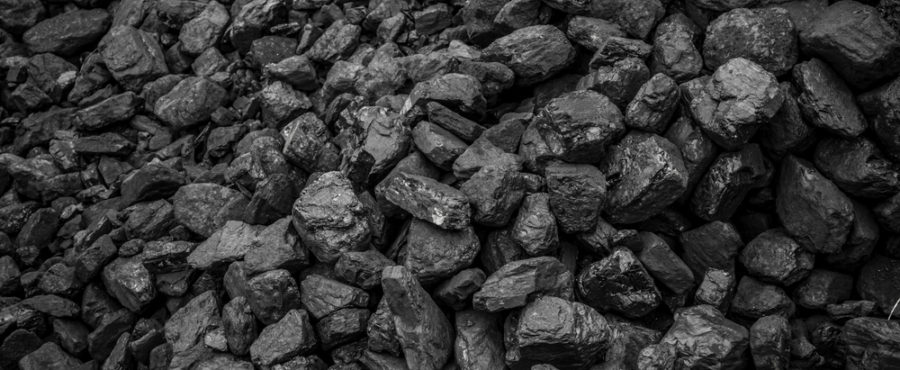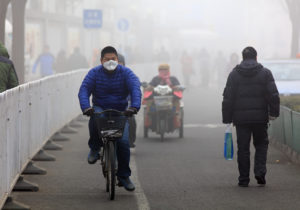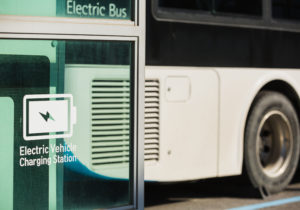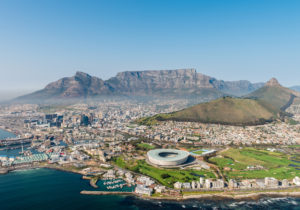
Blue coal means ten times lower emission of air dust and twenty times lower emission of cancerogenic hydrocarbons. Additionally, it provides about 10 per cent more energy than other coal types, so heating your home is proportionately cheaper. Now as many as 3.5 million coal boilers in households do not meet any emission standards at all. If, however, one could use blue coal as fuel in those boilers, harmful emissions could be eliminated. “There are enclaves where blue coal would be a necessity, where something must be done instantly, without having to implement a 10-year-long boiler replacement program”, points out Aleksander Sobolewski, director of the Institute for Chemical Processing of Coal in Zabrze, Poland.
“Blue coal is a new product made from our ordinary Polish coal, which is a smoke-free fuel. Burning of this coal type produces about 10 times less pollution and is smoke-free. When someone burns ordinary coal in an old boiler, the smoke from the chimney resembles one in an old locomotive and if in this very same boiler, with no modifications whatsoever, we put blue coal, there will be no smoke at all”, Aleksander Sobolewski, director of the Institute for Chemical Processing of Coal in Zabrze, tells Newseria Innowacje agency.
Blue coal is largely based on ordinary black coal and its production is similar to coke production technology. It is heated in about 450 degrees Celsius. In this way the process releases most of harmful substances and what is left – the healthier and more energy-effective portion, is delivered to the consumer.
Therefore, blue coal may resolve the issue of air pollution in Poland, particularly, due to the fact that old, smoking boilers are the biggest source of air pollution over Poland. A report of the Institute of Environmental Economics (IEŚ) reveals that these boilers are responsible for half of emission of dust and 85 per cent of cancerogenic benzopyrenes. The first tests of blue coal in Silesia showed PM10 dust figures drop several times. Measurements made in Lesser Poland revealed that several tens of times less benzopyrenes is released to the atmosphere.
“Blue coal is much cleaner, 7-10 times cleaner than regular coal, but it is simply more expensive. Poles burn coal not because they love it, but because coal is the cheapest fuel for heating”, explains Aleksander Sobolewski.
A report produced upon request of the Economic Chamber of Sellers of Polish Coal (IGSPW) contained a paper titled “Energy poverty – mortality and its cost”. It shows that only in 2017 in Poland, cold and energy poverty led to the death of over 35 thousand people. Energy poverty harms a total of 4.6 million Poles, including more than 2 million households.
Blue coal might help improve the situation, but because of its price it probably won’t. This ecological fuel is 30-40 per cent more expensive than regular coal. Therefore, most people, when given the choice of ecological but more expensive coal and cheaper regular one will choose the latter. Costs will win with ecology.
“Blue coal is a very good, original solution. On one hand, it is necessary to either introduce a system of incentives, promote the purchase, or perhaps, in some places, introduce a system of prohibitions. We pass a simple regulation prohibiting the burning of regular coal in some health-resorts and that’s it”, says the expert.
Introducing blue coal will not eliminate the need to get rid of old, smoking boilers. Based on obsolete technology, the boilers will take any fuel, and may release as much as 400-600 mg of dusts per cubic meter into the atmosphere. The Polish Ecology Chamber (PIE) estimates that if Poland was to fulfil the pollution standards adopted when entering the EU, coal fuels must disappear from the market. Blue coal meets even the most restrictive regulations, and its environmental impact is virtually minimal.
“There are certain enclaves, where blue coal will be a necessity, in my estimation. These are exceptionally polluted places, with huge accumulation of pollution produced by household heating, e.g. the Valley of Nowy Sącz or health-resort areas”, asserts Aleksander Sobolewski.
In Nowy Sącz users of blue coal receive a free-parking card for zones A and B of the town. In Świeradów, households in zone A may use only natural gas or electric heating systems, while coal boilers prevail in that area. Blue fuel will prove fine where coal boilers will be difficult to eliminate.
However, launching the first production line still remains a challenge, but only such a production line could result in massive production of clean coal. The line, however, is still not there.
“Like with any other fuel, this is not a business for one or two thousand tonnes. An installation system that is cost efficient is one for 30-40 thousand tonnes, and its final capacity should total 150-200 thousand tonnes of fuel. On a smaller scale this is simply not cost-efficient, because someone must invest millions of zlotys and they must be sure that in a few years the product will still be saleable”, stresses Aleksander Sobolewski.
Source: Newseria




